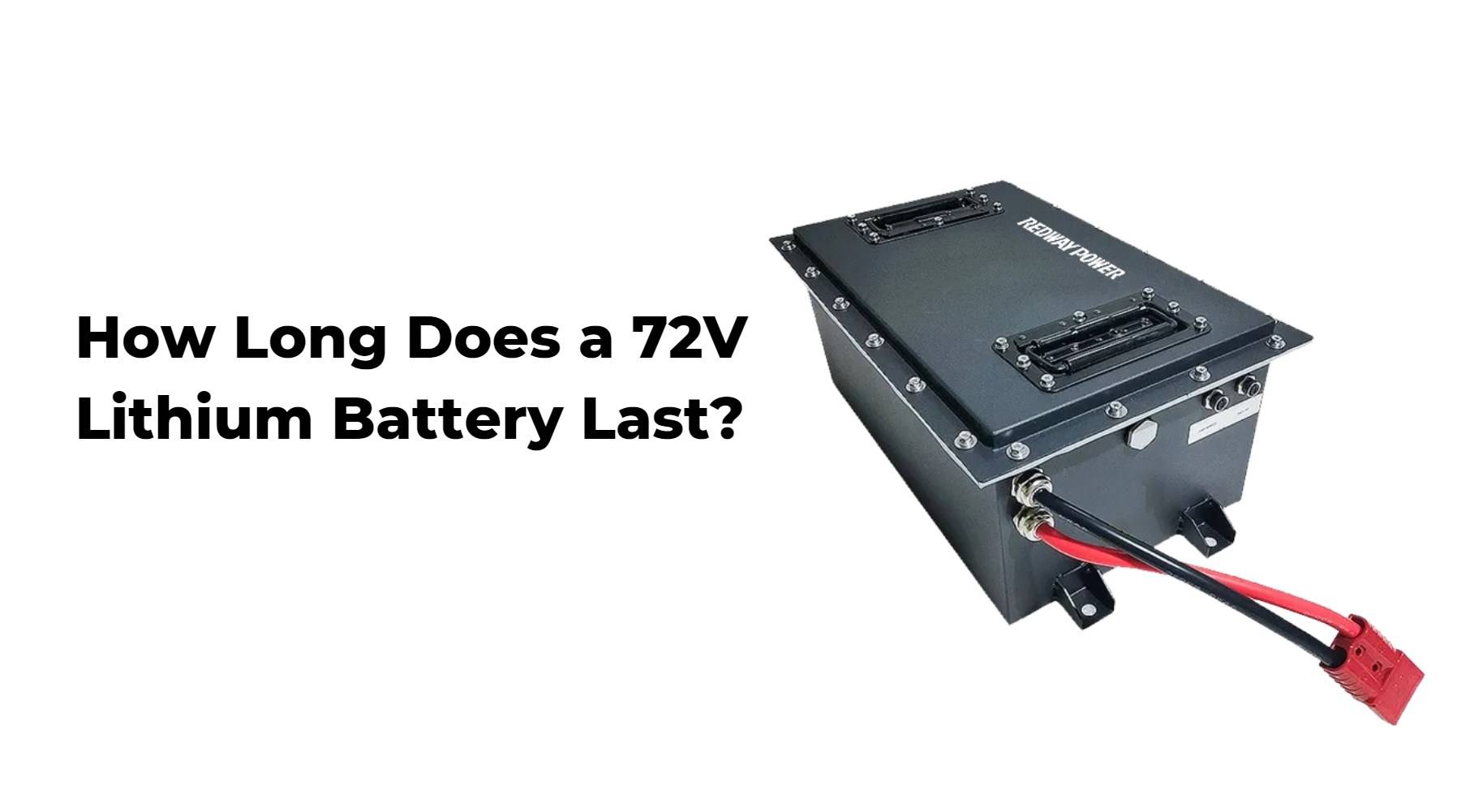A 72-volt lithium battery typically lasts between 2-5 years depending on usage patterns, depth of discharge, and maintenance practices. Regular monitoring can help extend its lifespan significantly.
Lithium batteries have revolutionized the energy storage landscape, offering high energy density, long cycle life, and reliable performance. This guide delves into the intricacies of 72-volt lithium batteries, providing detailed insights on how to maximize their lifespan and ensure optimal performance across various applications.
Understanding Lithium Battery Lifespan
Lithium batteries are favored for their longevity and efficiency. A 72-volt lithium battery, often used in electric vehicles (EVs), renewable energy systems, and recreational vehicles, can last significantly longer than traditional batteries if managed properly.
Cycle Life of 72-Volt Lithium Batteries
The cycle life of a lithium battery is the number of complete charge and discharge cycles it can undergo before its capacity significantly declines. Typically, a 72-volt lithium battery can endure between 500 to 2000 cycles, depending on factors such as battery quality, manufacturing processes, and operational conditions.
Factors Affecting Cycle Life
Depth of Discharge (DoD)
The depth of discharge is a critical factor in determining battery life. Batteries discharged to 50% capacity generally last longer than those consistently discharged to 100%. Shallow discharge cycles help prolong the lifespan of lithium batteries.
Charging Practices
Proper charging techniques are essential for extending battery life. Avoid overcharging and always use chargers recommended by the manufacturer. Smart chargers that automatically shut off when the battery is fully charged are ideal.
Operating Temperature
Lithium batteries perform best within a specific temperature range, typically between 20°C to 25°C (68°F to 77°F). Extreme temperatures can reduce the battery’s cycle life. It is crucial to manage the operating environment to maintain battery health.
Storage Conditions
For long-term storage, batteries should be kept in cool, dry places and maintained at a charge level of around 50%. Proper storage conditions prevent degradation and preserve battery health.
Expected Lifespan in Real-World Applications
Electric Vehicles (EVs)
In electric vehicles, a 72-volt lithium battery can last between 3 to 7 years, depending on usage intensity. Frequent long trips and high-speed driving can shorten the battery’s lifespan, while moderate usage with regular maintenance can extend it.
Renewable Energy Systems
In solar or wind energy storage systems, these batteries are expected to last between 5 to 10 years. Stable charge and discharge patterns typical of renewable energy systems contribute to this longevity.
Recreational Vehicles and Marine Use
When used in recreational vehicles (RVs) or boats, a 72-volt lithium battery typically lasts between 4 to 8 years. Seasonal usage and proper off-season storage practices significantly influence this duration.
Maintenance Tips for Extending Battery Life
Regular Inspections
Conducting regular inspections to check for signs of wear, corrosion, or damage can help identify potential issues early. Addressing these issues promptly can prevent further damage and extend battery life.
Proper Charging Techniques
Using the correct charger for your battery type is crucial. Avoid overcharging by using smart chargers that automatically shut off when the battery is fully charged. Charge the battery before it drops below 20% capacity to maintain optimal health.
Temperature Management
Maintaining the battery within the optimal temperature range is essential. During hot weather, avoid leaving the battery in direct sunlight, and during cold weather, keep it in a warm environment if possible.
Balanced Usage
Strive to use the battery in a balanced manner, avoiding deep discharges and frequent full discharges. Regular partial discharges with occasional full discharges are ideal.
Advancements in Lithium Battery Technology
Solid-State Batteries
Solid-state battery technology is emerging as a significant advancement, promising to enhance the lifespan and safety of lithium batteries. These batteries use a solid electrolyte instead of a liquid one, reducing the risk of leakage and increasing stability.
Battery Management Systems (BMS)
Advanced Battery Management Systems offer better control over charging and discharging processes. A sophisticated BMS can help maintain optimal battery health, thereby extending the lifespan of a 72-volt lithium battery.
Improved Materials
Research into new materials, such as silicon anodes and advanced electrolytes, is ongoing. These innovations could lead to higher capacity batteries with longer lifespans and faster charging times.
Environmental Impact and Recycling
Recycling Programs
Lithium batteries are recyclable, and numerous programs are in place to ensure they do not end up in landfills. Proper recycling processes recover valuable materials like lithium, cobalt, and nickel, which can be reused in new batteries.
Environmental Benefits
Using lithium batteries, especially in renewable energy systems, contributes to a reduction in greenhouse gas emissions. Their long lifespan means fewer replacements, resulting in less waste and a smaller environmental footprint.
Conclusion
The lifespan of a 72-volt lithium battery is influenced by various factors, including usage, maintenance, and environmental conditions. By adhering to best practices in charging, storage, and usage, it is possible to maximize the lifespan of these batteries, ensuring they provide reliable performance for many years. As technology continues to advance, we can expect even greater improvements in the longevity and efficiency of lithium batteries, further enhancing their value and sustainability.
By following these guidelines and staying abreast of technological advancements, users can ensure that their 72-volt lithium batteries deliver maximum performance and longevity, making them a valuable investment for various applications.



